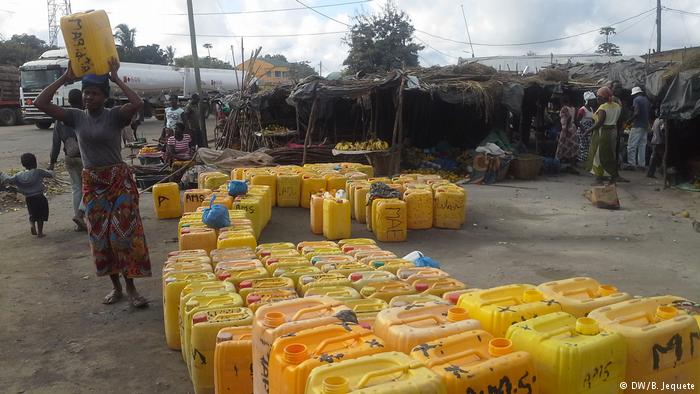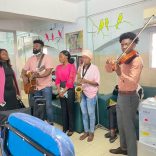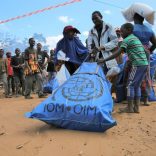Mozambique: PDUNM will rebuild two thousand houses and generate around eight thousand jobs
Mozambique: 86,000 people in Manica lack drinking water

Photo: DW
More than 86,000 people out of a total of 142,000 inhabitants lack potable water in the Machaze district, south of the Mozambican province of Manica. At present, the supply coverage rate stands at 40 percent, serving just 56,500 people across the district.
Due to the lack of water sources in the Machaze district, the underprivileged consume impure water from traditional wells, rivers and ponds. Many have to travel long distances to find the nearest source.
Nhacha Mário Gonçalo, a resident of the locality of Masvissanga, is one of the people affected by the lack of drinking water. “We have been fetching [water] from the stream where we wash our clothes, drinking dirty water,” he says.
Disease caused by using unsanitary water is ubiquitous. Nhacha says that the district government has been gradually responding to the population’s complaints, turning some sources into small water systems.
Turning boreholes into water systems

Machaze district administrator Joana Guinda told DW Africa that there are currently 128 operational boreholes in the district. In addition, there are 23 small water supply systems and 73 hand pumps in the main clusters of the district.
Guinda promises that programmes to transform boreholes in water supply systems are underway. Attention is currently focussed on the village of Chivavisse, near Chipudje.
António João Batista, traditional chief [régulo] of a village in Sambassoca in Machaze district, welcomes these measures. “We note with satisfaction the transformation of nine water boreholes into small systems, where water supply is more comprehensive,” he says.
The régulo says the operation has reduced the “great distances” that the population had to go in search of drinking water and, at the same time, reduced “queues of people in the sources”.
The population of Machaze is expert in finding ways to collect and save water. Even a little rain is captured in the famous gutters that adorn precarious and grass-covered residences and hospitals and schools alike.
President reiterates commitment
The problem of lack of water in the district was also addressed by the president of Mozambique during a recent visit to the province. At a popular rally in Sambassoca, Machaze, on 14 July, Filipe Nyusi gave assurances that the authorities were working on solutions.
“When we were here in 2014 and 2015, we talked about water for the village of Machaze. A water system, albeit small, was created from the boreholes, and we made a commitment and continued to sink more boreholes throughout in the localities and villages, and even increased the [supply] capacity in Machaze itself,” the head of state said.
District administrator Joana Guinda has assured DW Africa that drilling boreholes for small-scale water supply systems will be carried out in localities including Sambassoca, Chipudje, Mavende, Mavissanga and Chipopopo.
The work is being implemented in partnership with UNICEF and is expected to culminate in an increase in the coverage rate of drinking water supply in the district from the current 40 to 56 percent.
In the Machaze district, the opening of boreholes is complicated by groundwater depths, but underground freshwater reservoirs provide good potable water.












Leave a Reply
Be the First to Comment!
You must be logged in to post a comment.
You must be logged in to post a comment.